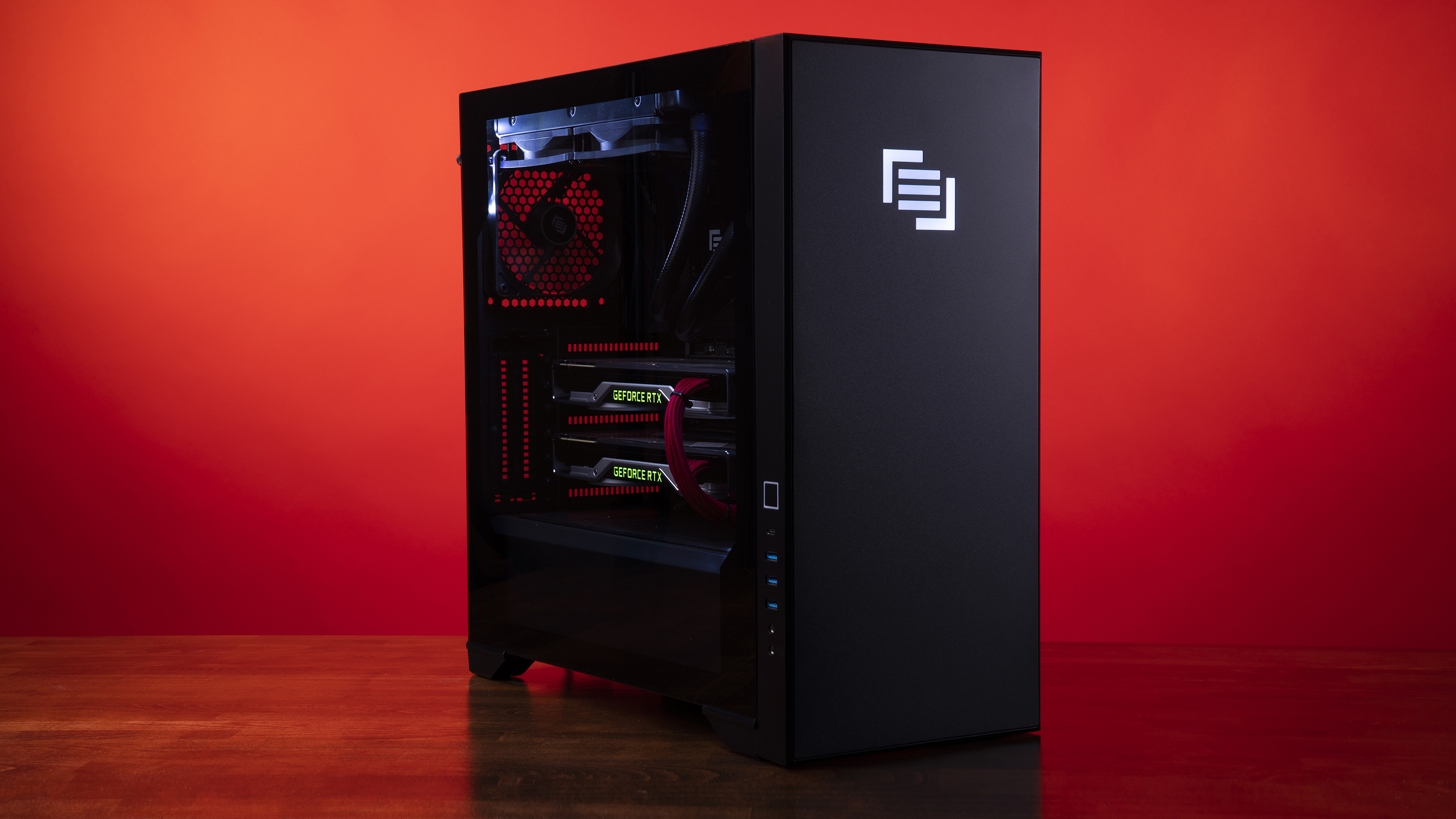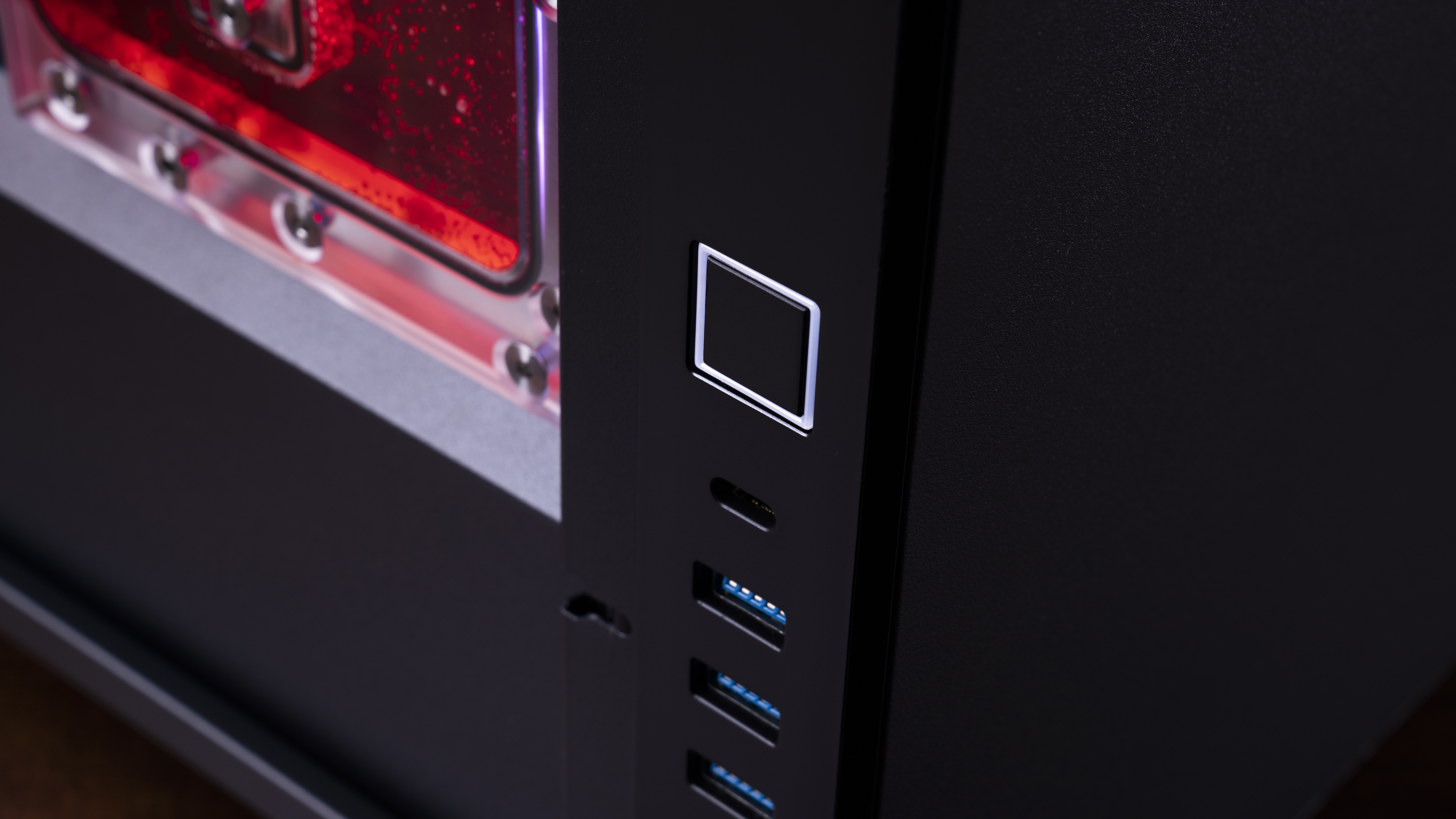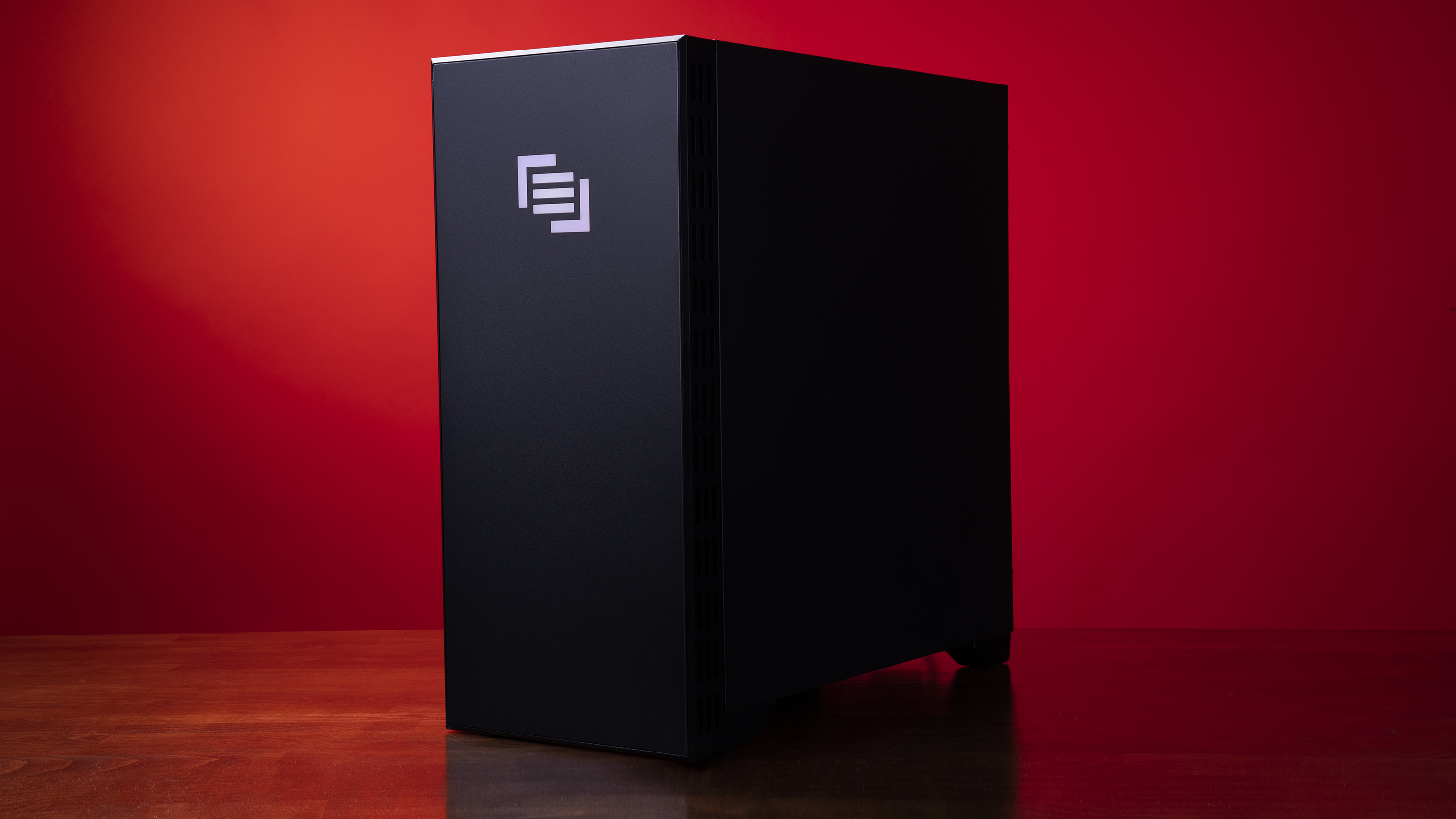Our Verdict
The Maingear Vybe is a hard-to-beat blend of components, aesthetic, silence, and price. It hits all the right notes for a high-end, classy rig.
For
- Subtle RGB
- Super quiet
- Price
Against
- Large chassis
PC Gamer's got your back
When it comes to prebuilt versions of the best gaming PCs these days, some of the differentiating features don't include hardware specs, because they're usually the same across the board. Case design, RGB lighting, cable management, cooling solution, noise, even customer service—those are what usually make or break a modern gaming PC when all the hardware is top quality. Maingear has the option to choose from one of four Vybe configurations or completely customize a PC based on your budget. Its 'stage 4' Vybe, the one reviewed here, is a near-perfect combination of hardware components, price, and customer service extras.
GPU: NVIDIA GeForce RTX 2080 8GB GDDR6
CPU: Intel Core i9 9900K, 8-core/16-thread, 3.6GHz (5GHz Boost clock)
Motherboard: MSI Z390 A-Pro
RAM: HyperX Predator 16GB DDR4 (2x8GB)
Storage: 512GB Intel 660p M.2 NVMe SSD, 2TB HDD SATA 6G
PSU: EVGA SuperNOVA 750 Watt B3 80+ Certified
CPU Cooling: Maingear Epic 240 Supercooler
Warranty: One year comprehensive
Included with the system is a lovely red box with 'It's dangerous to go alone! Take this' printed on the front. Inside is a message from Maingear’s CEO, a mouse pad perfectly bundled in another long box, and all sorts of extra goodies, including a thick plastic zipper pouch labeled 'Important stuff,' and filled with said important stuff, placed neatly under wrapping paper taped together with a sticker that reads 'Maingear lootpack.' The high-end, boutique-style care and attention to detail told me two things: one, Maingear cares about its customers; and two, it cares about the PCs it builds. It was an immediate good first impression.
From that good first impression, I was confident that I was going to instantly like the look of the Vybe once I pulled it out of the box. I was right. This Vybe build doesn't obnoxiously ooze RGB lighting out of every component. Instead, there are two simple lighting strips on the inside, one on the left-front and the other on the top-right. The effect is beautifully subtle. The lights dance around the components like a metallic rainbow if you have a cycling effect on, or compliments the brightly lit name across the front of the GPU with a stationary setting—all of which can be controlled with a remote that fits in the palm of your hand. You won't need to wear sunglasses inside your room when this machine is turned on.
The Vybe case is also similar to NZXT's (now last-gen) H700 and H700i case: covered bottom compartment for the power supply and two HDD bays; two vertical SSD SATA bays; space to mount the all-in-one liquid cooler radiator either on the top or the front; the simple, sleek, and boxy design with a tempered glass panel on one side. Both cases also come with velcro straps preinstalled in the case to make cable management that much easier. It's easy to love this case for all the same reasons as NZXT's lineup.

However, Maingear's Vybe case has metal mesh panels on top for extra air flow, and the I/O panel is on the side of the chassis rather than the top. The Vybe has three USB 3.0 ports and one USB-C port compared to NZXT's H700i's two USB 2.0 and two USB 3.0 ports. It also doesn't have that metal bar to the right of the motherboard like the NZXT case, which I appreciate immensely; it doesn't clutter the inside and it seems like cable management would be a lot easier without it in the way.
The Vybe is a mid-tower case, so it's a little cumbersome like the majority of PC cases these days. But it makes up for that with how quiet and always cool to the touch it is. If someone blindfolded you and asked you tell the idling sound of the Vybe apart from Corsair's One i160, I bet you wouldn't be able to do it. The Vybe is exactly as quiet as the One i160, which I thought no PC would have been able to match on the silent scale. Sadly, you can tell the two apart once you throw on a graphically intensive game, but barely. This is the quietest 'traditional-sized' PC I have ever heard.
There aren't any surprises performance-wise, as this Vybe configuration comes with an Intel i9-9900K, GeForce RTX 2080, MSI Z390 A-Pro motherboard, and 16GB DDR4 RAM. The 512GB SSD is a minor downside, even if it's a M.2 NVMe SSD, but it comes with a 2TB HDD to make up for the lack of storage space. As long as you aren't using the SSD for a bunch of games, 512GB is more than enough room.

There wasn't any indication that the CPU was overclocked, but when it comes to single core benchmarks, the Vybe scored 220 on single core performance in Cinebench and 2175 on multicore performance. And, of course, the RTX 2080 smashed 1080p performance with a 3DMark Fire Strike score of 24930 and consistently high fps performance in our trio of in-game benchmarks on ultra graphics: an average of 110 fps in Total War: Warhammer II; 134 fps in Shadow of the Tomb Raider; and 77 fps in Ghost Recon: Wildlands. 3DMark scores for 1440p and 4K were 13710 and 6845, respectively.
However, there is an fps dip with DirectX 12 turned on for Total War: Warhammer II, which averages 87 fps. Real time ray tracing benchmarks in 3DMark Port Royal scored 6260 at 1440p, or an average of 30 fps. The same benchmark test on 1080p showed a slight improvement with a score of 7708 and 35 fps. It's no surprise that ray tracing cuts GPU performance, but Port Royal is a lot more demanding than current ray tracing games, like Metro Exodus. Actual in-game fps for Metro Exodus at 1080p on ultra fluctuated between 90 fps and 60 fps most of the time, depending on what was happening on screen. Intense combat drove the fps to just under 60.
Without adding on any extras, Maingear’s 'stage 4' Vybe build is $2,499 before taxes and shipping charges. Considering its delectable spec list, that's a reasonable price for a build that hovers somewhere between a high-end and an extreme gaming rig. Maingear also offers lifetime service labor and phone support with a one-year comprehensive warranty, so you'll never have to worry if something goes wrong. The Maingear Vybe really is a near-perfect prebuilt system.
The Maingear Vybe is a hard-to-beat blend of components, aesthetic, silence, and price. It hits all the right notes for a high-end, classy rig.



